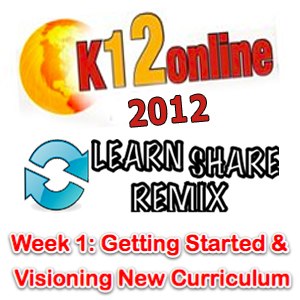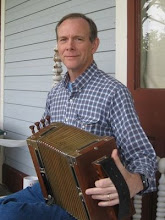On this episode of TTT, @kfasimpaur @JimNordlinger @paulallison @monk51295 and Marina Lombardo consider what video or videos might come from the Youth Voics Summer Program.
This is a planning-in-public episode on Teachers Teaching Teachers, which we held less than a week before we launched into the three-week Youth Voices program this July, which was the New York City Writing Project's participation in the Summer of Making and Connecting and part of the National Writing Project's Educator Innovator.
The week before this episode of TTT, with my colleagues in the New York City Writing Project, Grace Raffaele, Jim Nordlinger, Noah Gordon, and Aliyah Hayes, we had been individually meeting 13 high school students were joined by five teachers for a three-week summer program focused on http://youthvoices.net/grid and http://youthvoices.net/play
What an exciting group of youths we were lucky enough to gather for this program! And thank you to all of our supporters who contributed to make this possible!
On this episode of TTT, Jim Nordlinger our video production lead and Karen Fasimpaur (who joined us in the third week) and I continue an ongoning conversations we've been having about the story we want to tell with a video that Jim has been shooting about the deep learning students and teachers do together on Youth Voices. Even as I type these notes for the podcast (from my one-week vacation in mid-August) Jim is working to finish editing the many, many hours of video that he captured during our work together in July. Reviewing this episode of TTT and seeing your comments should at least inspire Jim, and might also suggest an angle that he had forgotten.
From the intake interviews in the last week of June (and even before in a teacher's classroom) to the final exhibition on July 25th Jim has been pointing his camera at our interactions. On this episode of TTT we be talk about what story we want to tell with this video project.
Please take the time to listen to this podcast, then we would love for you to add any insights you might have about what audience we should be aiming to connect with (the average civilian?) and what message we want to convey about the way teachers and students can work together in an online learning space built on National Writing Project values and beliefs.
Enjoy this episode of TTT, as we make transparent our planning process. We would love to have you challenge us and support us, to make us re-think and to be inspired as well.
Click Read more to see the chat that was happening during this live webcast.










 nds.
nds.
 presented on the “Frameworks for Success in Postsecondary Writing” at the National Writing Project’s Annual Meeting in November, where she discussed the statement’s purpose, and recounted the process of composing it. We’ll ask her do some of that again. We’ll also use some of her questions from that session to guide our discussion on Wednesday evening: “What is your response to the statement? How might you use it to promote effective writing instruction at your school? How could this statement help you design thoughtful professional development?”
presented on the “Frameworks for Success in Postsecondary Writing” at the National Writing Project’s Annual Meeting in November, where she discussed the statement’s purpose, and recounted the process of composing it. We’ll ask her do some of that again. We’ll also use some of her questions from that session to guide our discussion on Wednesday evening: “What is your response to the statement? How might you use it to promote effective writing instruction at your school? How could this statement help you design thoughtful professional development?” on
on 
